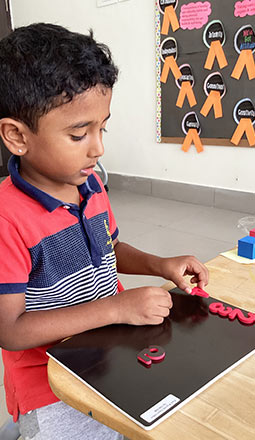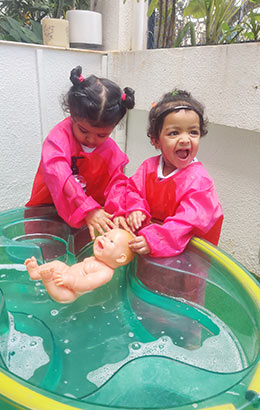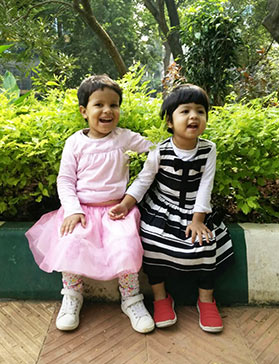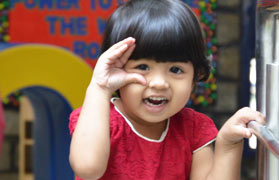The children of today or Generation Alpha as they are called are exposed to multisensory media and technology that one would not have imagined possible a decade ago. They are bombarded by a fusillade of stimuli that create a mirage of fantasy which may overshadow the classroom experience making it appear faded and dull by comparison.
A teacher at school must compete against this fast-paced kaleidoscope of colour, sound, and visuals to capture the attention of the students in the classroom for effective learning to take place. With the click of a key, the internet provides students with multiple options and tonnes of information. While the use of Internet search engines makes students adept at remembering where to find things, it does not necessarily give them the skill to remember things. To be able to recall and apply information appropriately within context is a skill perhaps best learned from teachers in the classroom.
Experiential learning in the classroom is the answer to student engagement in today’s time. The concept of learning through experience was first suggested by Piaget in his Constructivist Theory in the late 1800s, but it was not until the mid-20th century that educationists started paying attention to it. Constructivism believes that learning happens through new experiences and comparing them to old experiences; it involves trial-and-error and discovery. It is a process of knowledge construction, knowledge recording and knowledge absorption with previous knowledge of the learner at the base.
At UWA ‘Active Learning’ is a technique deployed to impart experiential learning to students. It is an active cognitive process on part of the student as compared to the traditional passive process of rote learning of the past. Robust engagement with the course material is only one aspect of Active Learning at UWA. The relevance of the task, examining its complexity and a reflective analysis at the end promote the three competencies of knowledge, skills, and attitudes (SKA) in our young learners.
Irrespective of the theory, the science of the method suggests that the involvement of students in Active Learning in terms of processing content has a major influence on understanding. Its impact has a lasting effect, and its reach extends beyond the classroom. Making connections comes easily since students are involved stakeholders in the learning process and are not mere observers or listeners. Ordinarily viewing a PowerPoint presentation is a passive activity, but the same presentation has the scope to develop critical thinking and better understanding through questions, discussions, and debates.
A good lesson plan at UWA will ask what are the students going to learn, what is the purpose and how best can it be achieved? Selection of meaningful activities then will revolve around these questions to ensure deeper knowledge and understanding for students. During lessons, the rationale is explained to students and guidance is provided so that they constantly process what they are learning and apply it in subtle ways. Thus, students are easily able to transfer information and skills to unfamiliar tasks making them lifelong independent learners.
Active Learning strategies are incorporated easily and effectively into our regular teaching through play, gamification, and other fun activities. Experienced teachers provide multiple opportunities in the classroom to engage in higher-order thinking tasks. Since students are willing participants, they learn in a more sustained way.
Active Learning is a cognitive practice where the learners understand the process of learning, making them responsible for the outcome. Many simple techniques such as brainstorming, working collaboratively, analysing number patterns, Hands-on activities, enquiry-based learning, educational visits, scientific experiments, researching for data to support arguments not only embed concepts but also instil confidence in young people.
Cooperative learning techniques such as Peer learning, Think-Pair-Share encourage meaningful discussions and generate a lot of ideas quickly. It is a known fact that discussing with a partner maximizes participation, focuses attention and aids incomprehension.
Roleplay and collaborative activities at UWA highlight the importance of social interaction, discovery, and trial-and-error for learning and development. Students remain involved and motivated as they learn in context and apply their learning in ways that are meaningful to their lives.
UWA believes in an approach to education that emphasizes ‘constructing’ knowledge rather than ‘absorbing’ information. This enjoyable experiential way of learning is the key to the holistic development of children.








